The Special Session “Universal Access to Technology” took place during IEEE International Symposium on Technology and Society (ISTAS) 2021 on 29 October 2021…. Read More
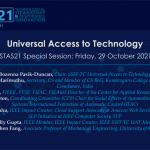


The Special Session “Universal Access to Technology” took place during IEEE International Symposium on Technology and Society (ISTAS) 2021 on 29 October 2021…. Read More
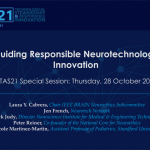
The Special Session “Guiding Responsible Neurotechnological Innovation” took place during IEEE International Symposium on Technology and Society (ISTAS) 2021 on 28 October 2021…. Read More
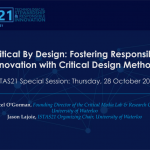
The Special Session “Critical By Design: Fostering Responsible Innovation with Critical Design Methods” took place during IEEE International Symposium on Technology and Society (ISTAS) … Read More
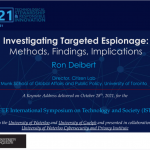
Ron Deibert presented “Investigating Targeted Espionage: Methods, Findings, Implications” as a Keynote during IEEE International Symposium on Technology and Society… Read More

Oreskes’ answer to the question “Why Trust Science” is that science is trustworthy to the extent that the social process by which scientists vet research findings and reach (or fail to reach) a consensus about them is open to a diverse community of scientists with ample opportunity to make objections and critiques and have that feedback taken seriously.

Mr. Dent discusses the lessons he has learned during his life that has brought him satisfaction. Click here to view… Read More

With modern technical careers spanning multiple employers and involving many changes in the work being done, modern technology professionals need… Read More

The volume under review is a selection of declassified FBI documents, reproduced in facsimile, from the Cold War era files of 16 people (15 men and one woman) described as scientists.
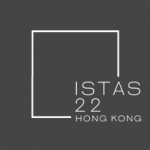
VIRTUAL CONFERENCE – Hong Kong, November 10-12, 2022 Conference Theme: “Digital and Societal Transformations” – Conference website: https://www.istas22.org

The book documents Limbaugh’s formative role in turning an old technology into an instrument of power that transformed the Republican Party and political discourse in the United States. The talk-radio host proved to be a success as both a propagandist and a ratings builder. Station owners were quick to join his syndicated network and to hire personalities who combined Limbaugh’s smooth delivery, ability to empathize with his audience, biting humor, and relentless attack on all things liberal—real or imagined. Profit mattered but winning the “culture war” counted for as much if not more than Rosenwald cares to consider.

Jeffrey (Jeff) Robbins, a dedicated SSIT member, author, and ISTAS presenter for over forty years, died April 18, 2022. “He added so much to SSIT over many years, with much humor and good will.”
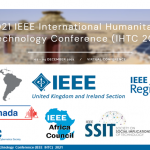
IEEE IHTC 2021 took place from 02 – 04 December as a virtual event hosted by the IEEE UK and… Read More
IEEE International Humanitarian Technology Conference (IEEE IHTC) 2021 took place from 02 – 04 December as a virtual event, hosted… Read More
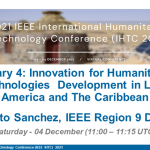
IEEE International Humanitarian Technology Conference (IEEE IHTC) 2021 took place from 02 – 04 December as a virtual event, hosted… Read More

IEEE International Humanitarian Technology Conference (IEEE IHTC) 2021 took place from 02 – 04 December as a virtual event, hosted… Read More
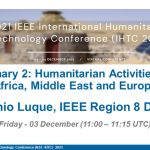
IEEE International Humanitarian Technology Conference (IEEE IHTC) 2021 took place from 02 – 04 December as a virtual event, hosted… Read More
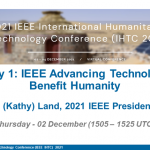
IEEE International Humanitarian Technology Conference (IEEE IHTC) 2021 took place from 02 – 04 December as a virtual event, hosted… Read More

When faced with an ethical problem such as a conflict of interest in which codes of ethics or available ethical problem-solving methods cannot help us decide upon the moral course of action to take. A method claimed to be helpful in such situations is The New York Times Test.
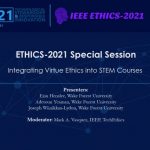
The “Integrating Virtue Ethics into STEM Courses” session took place during ETHICS 2021 on 31 October 2021. It was moderated by… Read More